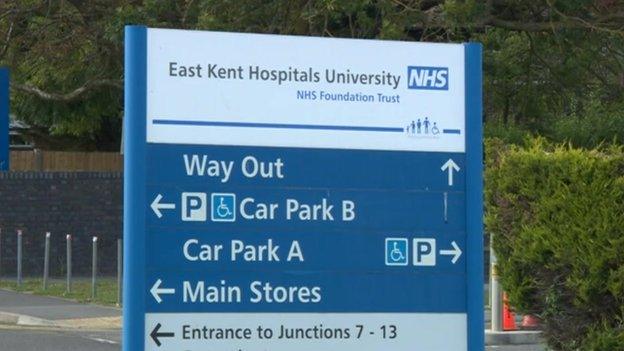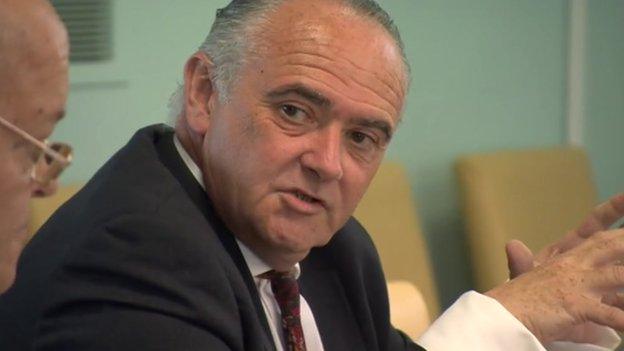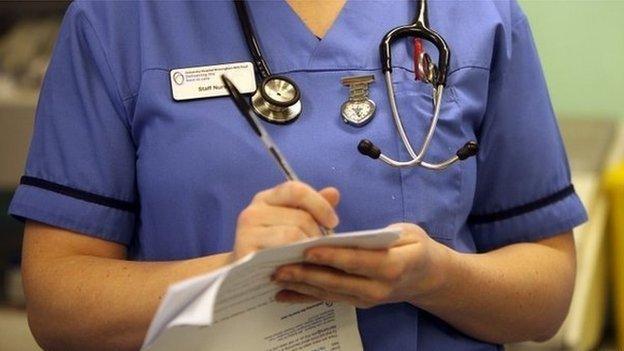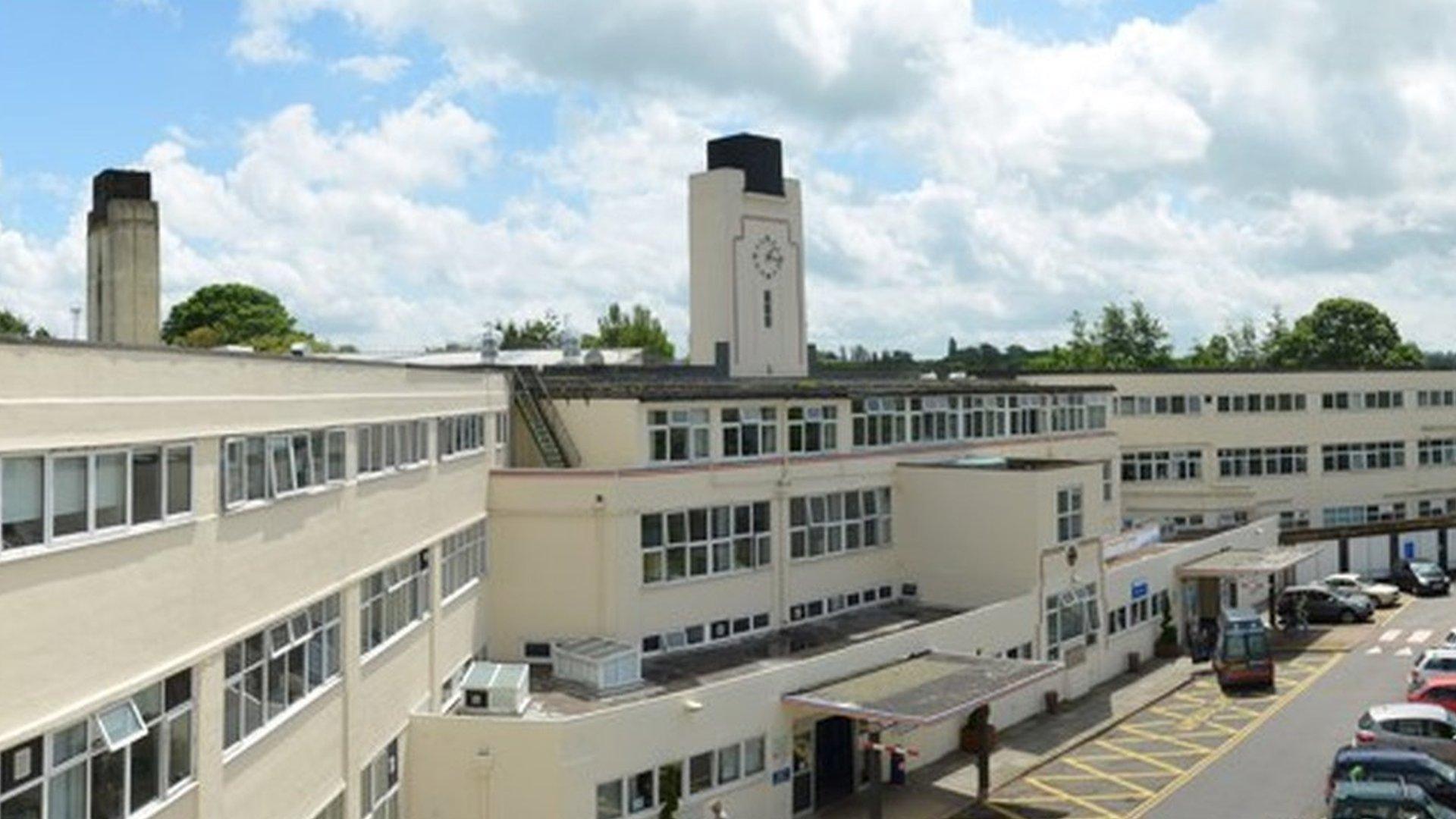East Kent NHS Trust facing deficit of £37m
- Published

The trust runs hospitals in Ashford, Canterbury, Margate, Dover and Folkestone
A Kent hospital trust put into special measures after "serious failures" in patient safety faces a deficit of about £37m by the end of this financial year.
The East Kent Hospitals University NHS Foundation Trust cited "the very high use of temporary staffing, particularly medical locums" as one of the reasons.
The trust said its financial position had been "deteriorating rapidly".
Interim chief executive Chris Bown said even if "we had all the money in the world" it would still have problems.
Simon Bolton, regional organiser of the union Unison, said the trust had been placed in an "impossible position".
"In common with most acute hospitals in Kent and the rest of the country, East Kent Hospitals is experiencing real financial problems.
"This is a result of the last government's policies when they stripped out £20bn and also the new NHS five-year plan that wants £22bn to come out.
"The internal market in the NHS and the Lansley reforms - if you can call them that - have decimated the NHS," he said.
Speaking in February, Andrew Lansley, who was the health secretary behind the changes, said patient care had been improved, and patients would "continue to see the results" of the reforms.

Chris Bown said the trust was looking at a two or three year "programme of change and recovery"
The trust runs the William Harvey Hospital in Ashford; the Kent and Canterbury in Canterbury; the Queen Elizabeth the Queen Mother (QEQM) in Margate; the Buckland in Dover; and the Royal Victoria in Folkestone.
Mr Bown said: "We're probably looking at around £37m deficit at the end of this year if we deliver a £16m savings programme, which is very challenging.
"But you have to put that into context. Remember the turnover, the budget, for this trust is over half a billion pounds a year - £550m per year of taxpayers' money - so whilst it's of significant number, we have to see it in that context."
The trust also has a high number of unfilled vacancies across its sites - 200 nurses are needed, and more than 80 doctors, Mr Bown said.
"It's the high cost of agency and locum doctors and nurses that we're having to use to maintain safe services."
He added that the trust was looking at a two or three-year "programme of change and recovery".
"It's not something that's going to change overnight," he said.
- Published4 August 2015

- Published30 March 2015

- Published4 March 2015

- Published2 September 2014

- Published13 August 2014

- Published17 February 2014
